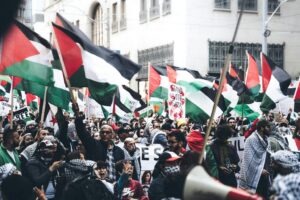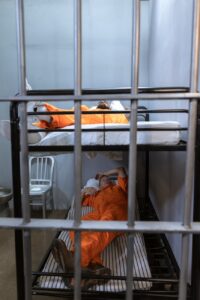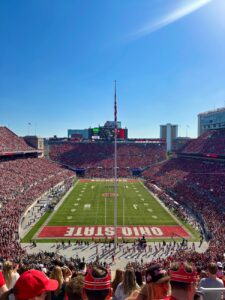The difference between good leaders and great ones
The first time I met Section Chief “Chief” Anthony Norwood, I was placed into his squad as an augmentee. I was a chemical guy placed in a squad of artillery guys. I felt out of place from the second I got there, but Norwood saw me as just another soldier and utilized me as such.
I always knew he was a good leader. He was confident and charismatic. He had a way of motivating soldiers like no one I have ever met. With Norwood by your side, there was absolutely no way you could fail.
This archived article was written by: Christopher Palo
The first time I met Section Chief “Chief” Anthony Norwood, I was placed into his squad as an augmentee. I was a chemical guy placed in a squad of artillery guys. I felt out of place from the second I got there, but Norwood saw me as just another soldier and utilized me as such.
I always knew he was a good leader. He was confident and charismatic. He had a way of motivating soldiers like no one I have ever met. With Norwood by your side, there was absolutely no way you could fail.
But anyone can be a leader. It’s what you do in a crisis that differentiates the good leaders from the great ones.
A section chief’s responsibility is great, almost too great. As section chief, he has to be accountable and aware of all of his soldier’s well-being, whether that is moral or physical well-being. He has to be aware of their strengths and weaknesses and how to properly utilize each soldier for the correct job in the mission. He has to make split second life or death decisions almost constantly and do it in a way that it looks like he has zero doubt about his decision. If you could do all that, you are a good leader. You have to go above and beyond that to be a great leader. In Iraq, this man showed me what it was like to be a great leader in 2006.
With a contestant influx of information being shoved into his brain from multiple outside sources, Norwood sorts through it and delivers it to the appropriate people. He gives a thorough convoy briefing, tells us to mount up in to our trucks and head out. He was placed in the middle of the convoy so he could observe all aspects of it and control and assess any issues that may arise. About five minutes in to the mission, he gets a radio message from the command briefing him on the latest intelligence about IEDs. He disperses this new knowledge to the rest of the convoy. “Alright, everyone listen up! Latest TTP says that if you see police lights on the overpass, it means an IED-.” He was unable to finish.
This intelligence had proven to be more accurate than he had initially anticipated. As he was saying it, police lights on the overpass right in front of them. Which, if he could see it, that meant the first vehicle had already gone too far. As he looked forward, he saw what he dreaded, a huge fire ball from both sides of the road. The first semi-truck we were escorting came over the radio, “Gun one is on its side, Gun one is on its side.”
Without hesitation Norwood acted, “Gun two get up there. Gun six pull rear security. Everyone keep your heads on a swivel!” He directs his call to the assistant convoy commander (ACC) and with a heavy heart he commands, “Henry, call the medevac. I think we are going to need it.”
As his driver pulls up to the blast site, he sees all the work he put into his soldiers pay off, all the yelling and manipulating, doing anything he could to make them the best soldiers he possibly could.
The truck was on its side, engulfed in flames, far too hot to be just from a normal fire. Norwood later found out that there was an accelerant used to increase the damage done to the truck. And he sees, like a fine tuned machine, his soldiers acting calm and doing exactly what they are supposed to: gunners watching their sectors, trusting each other; drivers and truck commander’s (TC) constantly updating each other on the situation and doing exactly as they are trained too.
The driver of Gun two had exited the vehicle and ran to assist the soldiers involved in the incident while his gunner kept the most vigilant watch over him, the TC calling for a medevac and calling the nearest post and informing them what the situation was.
Norwood took control of the situation. “Get that man on a litter. You, go set up a landing zone for the medevacs.” Nobody questioned his orders; we just reacted, knowing they were right.
He runs with the soldiers carrying the litters, letting each casualty know that he was proud of them and that everything was going to be fine. After the medevac took off, he went back to the only person left from the blown up vehicle, his friend Sgt. Caldwell. He looks at Caldwell, the former gunner of the now downed vehicle, and sees blood covering both of his legs. The man can barely stand. Norwood asks,” Ced, you alright?”
Caldwell, barely understandably says,” How long till we are done?”
Norwood, unsure what he means, “What?”
“How long till we reach FOB [Forward Observation Base] Spiecher?”
Norwood realizing that this soldier, his friend, a man who he trained to be one of the hardest people out there, is putting the mission first. This man is injured, barely conscious and all he can think about is finishing the mission. Pride wells up in him for not only his soldier, but also himself, for he trained these men, these warriors, to do exactly what needed to be done without hesitation or thought of personal safety. Norwood says to Caldwell, “We got a long way. You did good brother. Let’s get you out of here.” He told the ACC to call for an additional medevac and waited with Cedrictill the medevac came.
It took 15 minutes from the time the explosion happened until the last person was back on the U.S. military base. Without a single hesitation or questioning thought, Chief Norwood showed unwavering dedication to his troops and the mission.
Never in my life has there been a person I am more willing to go through hell with and there is no other person who has my complete and total trust.
In the hellish world, this man was nothing more than a beacon of hope and inspiration and for that I am forever grateful.




